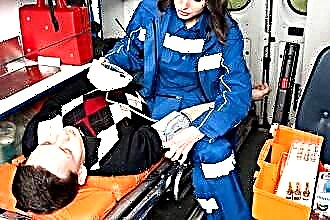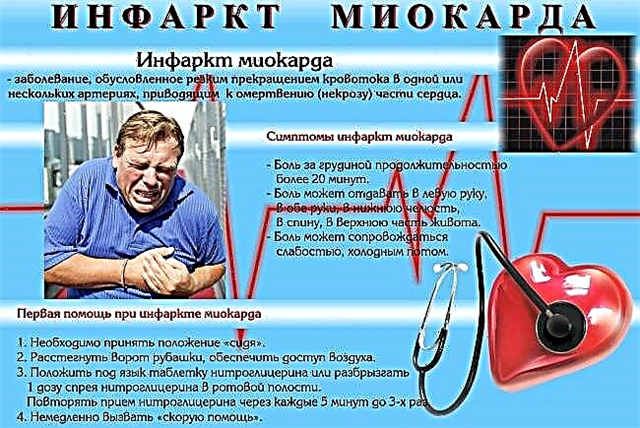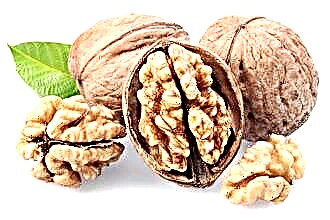 Therapeutic tactics varies depending on the severity of symptoms, the severity of the disease and the individual characteristics of the organism. Drops from allergic rhinitis are the most common drug that is prescribed for therapeutic and prophylactic purposes.
Therapeutic tactics varies depending on the severity of symptoms, the severity of the disease and the individual characteristics of the organism. Drops from allergic rhinitis are the most common drug that is prescribed for therapeutic and prophylactic purposes.
Deterioration of the condition can be observed both with hay fever, as well as after contact with:
- house dust, where many mites live. The reaction develops when the products of their vital activity are inhaled;
- chemicals with a pungent odor;
- cosmetics;
- medicines;
- food products. Frequent allergens include honey, eggs, dairy, seafood, citrus fruits, chocolate, strawberries;
- mold;
- wool;
- insects.
The most susceptible to allergies are people with autoimmune systemic diseases (cystic fibrosis), bronchial asthma, children with lymphatic-hypoplastic diathesis, immunodeficiency. Do not forget about the genetic predisposition, especially if both parents suffer from allergic manifestations.
Symptom complex
The clinical complex includes:
- itching sensations in the nasal passages, eyes, on the skin;
- conjunctival hyperemia;
- lacrimation;
- tickling in the nasopharynx;
- decreased sense of smell due to swelling of the mucous membrane;
- nasal congestion;
- weakening of taste sensations;
- swelling of the lips, face;
- skin rashes;
- cough.
A distinctive feature of allergies is profuse rhinorrhea. Discharge from the nose is clear, watery and abundant.
Regardless of the severity of clinical signs, it is necessary to consult a doctor to eliminate them and prevent the appearance of new symptoms.
Treatment directions
Allergy treatment largely depends on the type of provoking factor. For example, if clinical symptoms appeared after eating an orange, it is enough to remove citrus fruits from your diet. If allergic rhinitis is diagnosed during the flowering period, it is extremely difficult to completely avoid contact with pollen. The only way out is to temporarily change the place of residence.
When the allergen stops acting on a person, the condition improves in the near future. Symptomatic therapy includes rhinitis drops, which have a local therapeutic effect and make nasal breathing easier. There are several groups of nasal agents:
- vasoconstrictor;
- steroid;
- antihistamines;
- means for cleansing the nasal passages;
- combined.
Now a little about how to properly use drops for allergic rhinitis. First, you need to cleanse the nasal passages with saline, then drip hormonal or antihistamines. As for vasoconstrictor drops, they are prescribed only with severe congestion, as well as a high risk of complications (otitis media, dacryocystitis).
Antihistamines
Antihistamines play a leading role in the treatment of allergies. They are used to reduce local manifestations of the disease. Their action is aimed at reducing tissue edema, rhinorrhea, which makes it possible to facilitate nasal breathing.
Here is a list of medications:
- Allergodil;
- Fenistil;
- Tizin Alerji, Histimet;
- Kromosol.
Each of the drugs has a specific mechanism of action, due to which it is possible to select the most effective for each case of the disease. Let's take a closer look at Allergodil.
The drug belongs to strong drugs with anti-inflammatory, antihistamine and membrane stabilizing properties. It is prescribed for conjunctivitis and rhinitis of a seasonal or year-round form. Restrictions for use apply to people with intolerance to azelastine (the active substance of Allergodil), as well as children under six years of age.
In the course of numerous tests, it was revealed that multiple excess of therapeutic doses does not have a mutogenic effect. In this regard, the medicine can be used throughout the entire period of gestation, as well as during lactation.
Adverse reactions include a low risk of local irritation at the site of Allergodil injection. It manifests itself in the form of burning, itching, sneezing, nasal bleeding. If, when instilling the nose, the head is thrown back strongly (which is incorrect), a bitter taste in the mouth may appear. Among the systemic undesirable consequences, it is worth noting respiratory failure, as well as dry skin.
For allergic rhinitis, one injection is recommended twice a day. According to indications, the dose can be doubled. The introduction of the spray should be carried out with the head upright (without tilting).
Given the likelihood of a prolonged course of allergies, for example, with hay fever, Allergodil can be used in a course of up to six months. During this period, mandatory monitoring by an allergist is required, which is necessary to assess the dynamics of treatment and the severity of the patient's condition.
Vasoconstrictor drugs
The composition of medicines of this group includes substances that can spasm the blood vessels at the site of their injection. Due to a decrease in the vascular diameter, the severity of tissue edema and rhinorrhea decreases.
Depending on the composition of the drops, the duration of the therapeutic effect can range from 4 to 12 hours.
There are quite a few drops names, they are often classified according to the active substance:
- ximetazoline. It is found in products such as Galazolin, Xymelin, Otrivin, Rinostop, Dlyanos;
- oxymetazoline. The most popular are Nazivin, Nazol, Fazin, Nesopin, Ferveks;
- tetrizoline. For example, Vizin, Tizin, Octilia;
- naphazoline. A prominent representative is Naftizin. The group also includes Sanorin, Naphazolin.
Given the mechanism of action of the drugs, the therapeutic course should not exceed 5 days. In the case of frequent nasal instillation, blood vessels may inadequately respond to the action of vasoconstrictor medications. As a result, the diameter of the vessels increases, and the symptoms return with greater force.
To avoid addiction, it is necessary to regularly change medications, as well as observe the recommended dosages and the duration of the treatment course.
Xymelin is a powerful drug. It is available in the form of a solution with different concentrations of the active substance, so in the pharmacy you can see 0.05%, as well as 0.1%. If the instructions are followed, the drug does not irritate the mucous membrane, begins to act in the first minutes and retains the therapeutic effect for up to 12 hours.
Xymelin with a lower concentration is prescribed from the age of two, in a dose of one or two drops, maximum twice a day. The more powerful Xymelin (0.1%) is applied after the age of six, three drops twice.
Among local and systemic adverse reactions, it is worth highlighting:
- violation of the cardiac rhythm;
- dyspeptic disorders (nausea, vomiting);
- headache;
 decreased vision;
decreased vision;- depressive conditions;
- dryness of the nasal mucosa;
- burning sensations;
- tingling sensation in the nasopharyngeal area;
- increased rhinorrhea; sneezing.
Adverse reactions increase when the permissible doses are exceeded.The simultaneous use of Xymelin with antidepressants is not recommended.
These drops from an allergic rhinitis have some contraindications:
- cardiopalmus;
- severe atherosclerotic vascular disease;
- uncontrolled hypertension;
- enhanced function of the thyroid gland;
- glaucoma;
- atrophic type of rhinitis.
Combined funds
Combined drugs are especially popular, which consist of a vasoconstrictor and an antihistamine component. Thanks to this, one drug can be used and a double effect can be obtained.
These drugs can reduce the diameter of local blood vessels, block the production of substances that stimulate the development of an allergic reaction.
Combined drugs include Sanorin-Anallergin, Vibrocil. Let's dwell on the latter in more detail. Nasal drops from allergic rhinitis can be prescribed for the treatment of seasonal and persistent allergies.
Among the contraindications, it is necessary to highlight chronic atrophic rhinitis, hyperfunction of the thyroid gland, uncontrolled hypertension, a period of up to two years, intolerance to active substances, as well as a therapeutic course with antidepressants.
The therapeutic effect lasts up to 6 hours, so you should drip two drops up to four times a day. Adverse reactions include skin rash, irritation of the nasal mucosa, headache, dyspeptic disorders. They are observed with non-compliance with the dosage and duration of the course.
It is also possible the appearance of drowsiness, lethargy, as well as a decrease in temperature.
Hormonal agents
Hormonal nasal drops for allergic rhinitis are prescribed for severe illness. Depending on the active substance, several types of drops are distinguished:
- beclamethasone. Representative - Nasobek;
- fluticasone, for example, Avamis, Nazorel;
- budesonide - Benarin;
- mometasone. Representatives - Dezrinit, Nazonex.
Steroid nasal drops for allergic rhinitis not only eliminate the clinical symptoms of the disease, but also affect the mechanism of allergy development. The therapeutic effect can be seen after 2-3 days from the start of using the drugs.
Considering the minimum volume of a hormonal agent that is absorbed into the general bloodstream, nasal agents have fewer contraindications in comparison with tablet forms of hormones.
Adverse reactions are observed if the recommended dosages are not followed.
With the uncontrolled use of nasal drops, the risk of addiction, systemic disorders, changes in the flora of the nasopharynx and a decrease in immune defense increases.
Contraindications include a tendency to nasal bleeding, gestation period, and childhood. The last group of nasal preparations is represented by saline solutions, such as Aqua Maris, Humer, Dolphin. They are used to flush the nasal passages and cleanse the mucous membrane of allergens, microbes and dust particles. Saline solutions can be used for therapeutic and prophylactic purposes over a long period.
There are many medications for allergies, but only combined treatment can block the progression of the disease and significantly alleviate the condition. In this regard, you should not choose nasal drops on your own to reduce nasal congestion, it is best to undergo a full treatment course under the supervision of a qualified specialist.

 decreased vision;
decreased vision;

